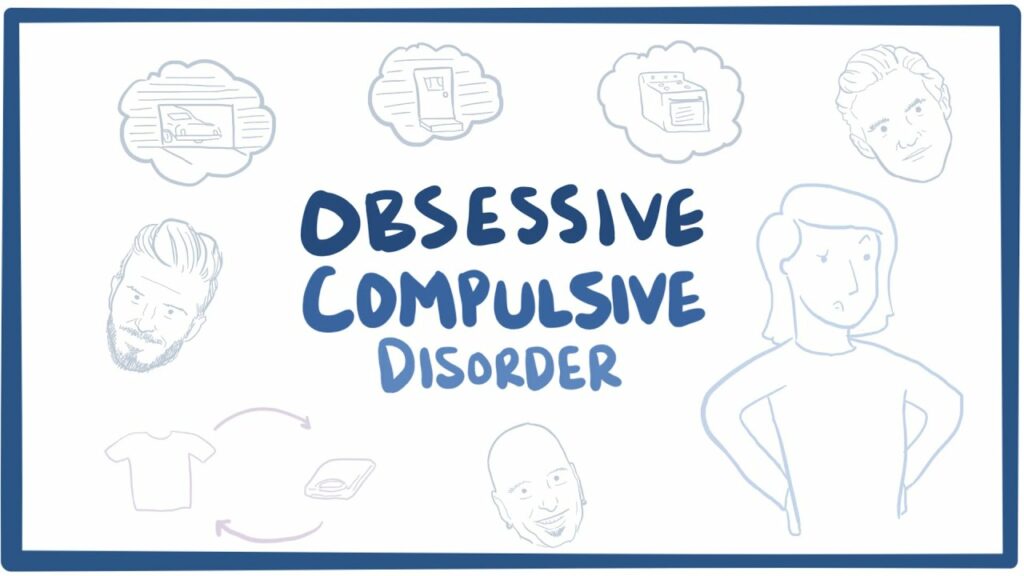OCD disorder is not just a quirk or personality trait that some people have. It is a serious mental illness that impacts the lives of millions of people all over the world. In this blog post, we will discuss what OCD disorder is, how it can impact your personal and professional life, and ways to overcome it. We hope that this information will be helpful for you or someone you know who is struggling with OCD.
Characterized by obsessions and compulsions, OCD, or Obsessive Compulsive Disorder is a mental illness or disorder. It is so because it becomes more than a schedule. Obsessions are intrusive thoughts, images, or urges that cause anxiety and distress. Compulsions are repetitive behaviors or mental rituals that someone feels the need to do to relieve their anxiety. OCD can be a very debilitating disorder, impacting every aspect of a person’s life.
People with OCD often have very specific rituals and routines that they feel the need to do to reduce their anxiety. For some, this may mean compulsively washing their hands or cleaning their house. Others may need to arrange things in a certain way or check and recheck things over and over again. OCD can make it very difficult to function in day-to-day life.
Contents
Knowing OCD
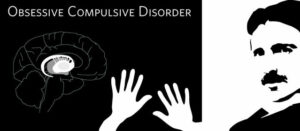
It’s normal, on occasion, to go back and double-check that the iron is unplugged or worry that you might be contaminated by germs, or even have an occasional unpleasant, violent thought. But if you suffer from obsessive-compulsive disorder (OCD), obsessive thoughts and compulsive behaviors become so consuming they interfere with your daily life.
OCD is an anxiety disorder characterized by uncontrollable, unwanted thoughts and ritualized, repetitive behaviors you feel compelled to perform. If you have OCD, you probably recognize that your obsessive thoughts and compulsive behaviors are irrational—but even so, you feel unable to resist them and break free.
Like a needle getting stuck on an old record, OCD causes the brain to get stuck on a particular thought or urge. For example, you may check the stove 20 times to make sure it’s turned off because you’re terrified of burning down your house, or wash your hands until they’re scrubbed raw for fear of germs. While you don’t derive any sense of pleasure from performing these repetitive behaviors, they may offer some passing relief for the anxiety generated by the obsessive thoughts.
You may try to avoid situations that trigger or worsen your symptoms with products that might further your condition. But while it can seem like there’s no escaping your obsessions and compulsions, there are plenty of things you can do to break free of unwanted thoughts and irrational urges and regain control of your thoughts and actions. It is important to understand that OCD is not one thing. It is different for everyone.
REMEMBER
People with OCD often feel intense shame about their need to carry out these compulsions. These feelings of shame can exacerbate the problem and the shame, and consequent secrecy associated with OCD can lead to a delay in diagnosis and treatment. It can also result in social disability, such as children failing to attend school or adults becoming housebound.
Types of OCD behaviors
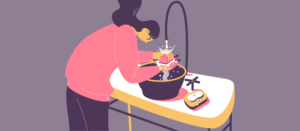
There are many different types of OCD behaviors, but some of the most common include:
- Checking: compulsively checking doors, locks, appliances, or other things to make sure they are “safe. Counting – repetitively counting objects, steps, or other things to relieve anxiety.
- Arranging: compulsively arranging objects in a certain order.
- Washing: excessive hand-washing, showering, or cleaning to reduce fear of germs or contamination.
- Hoarding: collecting and keeping objects to an extent that interferes with daily life.
- Cleaning and contamination: compulsively cleaning and disinfecting to reduce fear of germs or contamination.
- Obsessions with symmetry, exactness, and orderliness: needing things to be “just so” can interfere with completing tasks or enjoying life.
- Intrusive thoughts: unwanted, intrusive thoughts about violence, harm, or other taboo subjects can cause anxiety and
- Aggressive or sexual thoughts: intrusive, unwanted thoughts about harming yourself or others can cause great anxiety.
- Compulsive skin picking: compulsively picking at skin to relieve anxiety.
- Hair pulling: compulsively pulling out hair to relieve anxiety.
- Tics: repetitive, involuntary muscle movements or vocalizations.
- Forbidden thoughts: having religious or moral obsessions can cause great distress.
- Harm to loved ones: fearing that you will hurt or kill someone you love can be very distressing.
- Judgement Phobia: The fear of being judged by others can lead to compulsive behaviors such as over-apologizing or excessive people-pleasing.
- Doubt and incompleteness: needing constant reassurance or feeling like you can’t do anything right can be very debilitating.
- Perfectionism: having high standards and a need for perfection can lead to compulsions such as excessive hand-washing or checking.
- Sin, religion, and morality: feeling like you are a bad person or that you have done something wrong can lead to compulsive behaviors such as confessing or seeking forgiveness.
Overcoming OCD
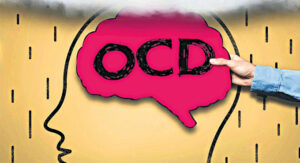
There are many different ways to overcome OCD, but some of the most common include:
Exposure and response prevention therapy (ERP): This is a type of cognitive-behavioral therapy that involves gradually exposing yourself to your fears and learning to resist the urge to carry out compulsions.
Cognitive-behavioral therapy (CBT): This is a type of therapy that focuses on changing the negative thoughts and beliefs that contribute to OCD.
Medication: Several different types of medication can be effective in treating OCD, including antidepressants, anti-anxiety medications, and antipsychotics.
Support groups: There are many different types of support groups available for people with OCD. These groups can provide support and encouragement, and can also be a great resource for information and advice.
Medication for OCD: Several different types of medication can be effective in treating OCD, including antidepressants, anti-anxiety medications, and antipsychotics. The type of medication that is best for you will depend on your situation and needs.
Psychodynamic Therapy: This is a type of therapy that focuses on exploring the unconscious mind and resolving past issues.
Family Therapy: This is a type of therapy that involves the whole family in treatment.
Art Therapy: This is a type of therapy that uses art as a way to express emotions and thoughts.
How OCD Impacts Your Personal and Professional Life
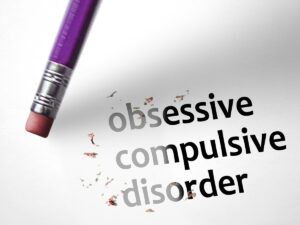
OCD can have a significant impact on your personal and professional life. Here are some ways that OCD can impact your life:
- Personal relationships: OCD can strain personal relationships due to the amount of time and energy that is required to manage the disorder. It can also be difficult to maintain close relationships when you are afraid of being judged or rejected.
- Work and school: OCD can interfere with work or school performance due to the amount of time and energy that is required to manage the disorder. It can also be difficult to concentrate when you are constantly worried about your thoughts or compulsions.
- Daily activities: OCD can make it difficult to carry out daily activities such as cooking, cleaning, and shopping. This is because compulsions can take up a lot of time, and avoiding triggers can make it difficult to go about your day-to-day life.
- Professional life: OCD can also impact your professional life. For example, if you have a fear of contamination, you may be reluctant to shake hands or participate in group activities. This can make it difficult to advance in your career or build relationships with co-workers.
- Group work: group work is essential for professional and company growth but OCD, it creates an obstacle in both.
Treating OCD

There are many different treatment options available for OCD, and the best approach will vary from person to person. Some common treatment options include:
Exposure and response prevention therapy (ERP): This is a type of cognitive-behavioral therapy that involves gradually exposing yourself to your fears and learning to resist the urge to carry out compulsions.
While there is no cure for OCD, there are treatments that can help people manage their symptoms and live a more normal life. Cognitive Behavioral Therapy (CBT) is one of the most effective forms of treatment for OCD. There are several others that we will discuss in this blog post.
There are many different types of OCD behaviors, and each person experiences the disorder in their unique way. This is why it is so important to seek professional help. If you think you or someone you know may be struggling with OCD. A professional can help assess the severity of the disorder. And develop a treatment plan that is tailored to the individual’s needs.
Conclusion
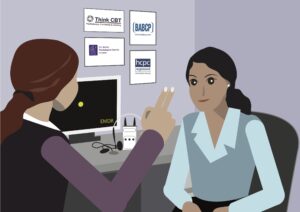
OCD is a complex disorder that can have a significant impact on your life. However, there are many different treatment options available, and with the right help, it is possible to manage OCD and live a happy and fulfilling life.
If you or someone you know is struggling with OCD, there are many resources available to help. The International OCD Foundation website is a great place to start, and they offer a variety of resources and support groups.
Treating OCD takes time, patience, and effort, but it is possible to overcome the challenges posed by this disorder. With the right treatment and support, you can live a full and happy life. Thanks for reading! I hope this was helpful. 🙂
If you or someone you love is struggling with OCD, don’t hesitate to reach out for help. There are many resources available, and treatment can be very effective. Remember, you are not alone in this!
If you have any queries regarding Online OCD Counseling experienced therapists at MantraCare can help: Book a trial OCD therapy session
